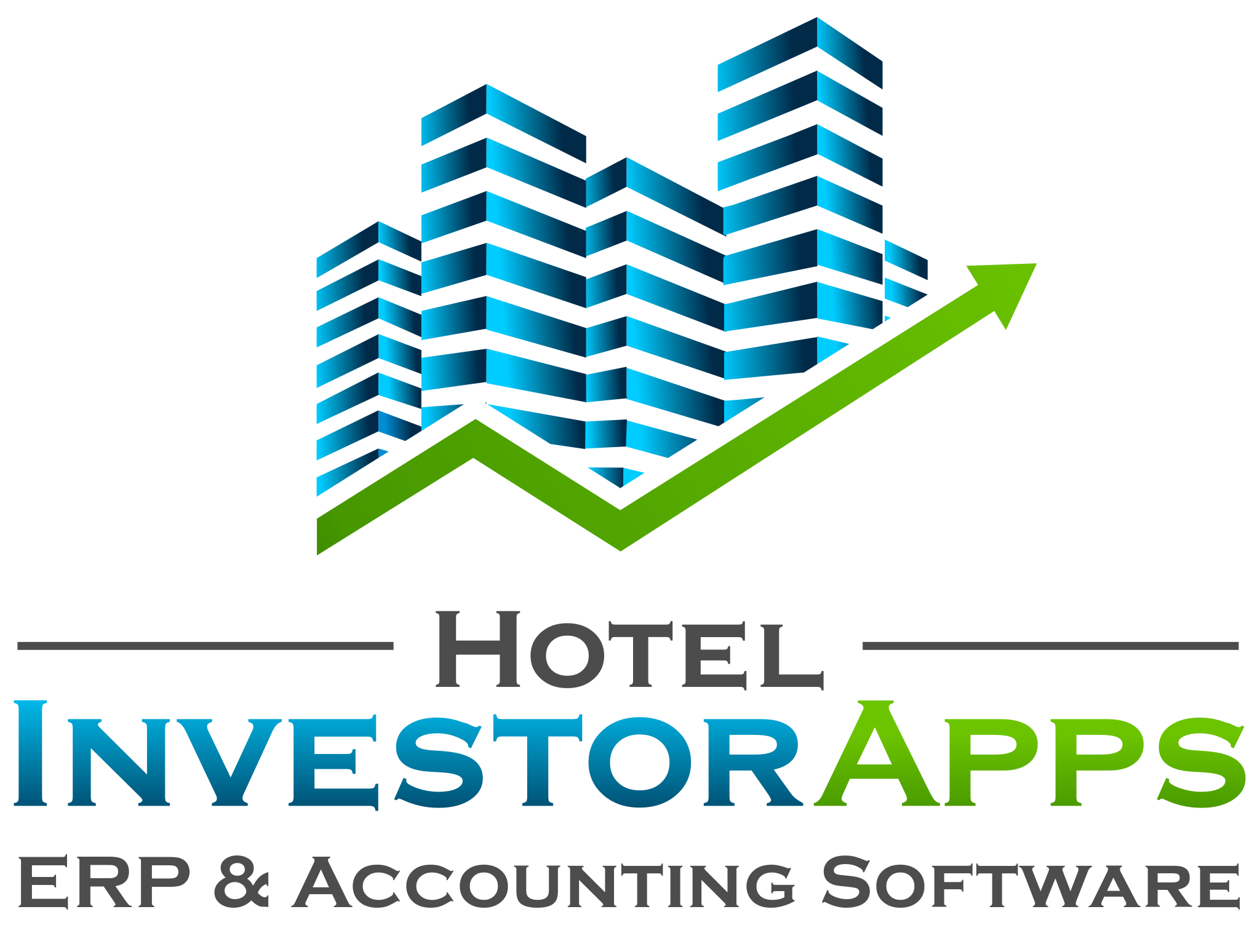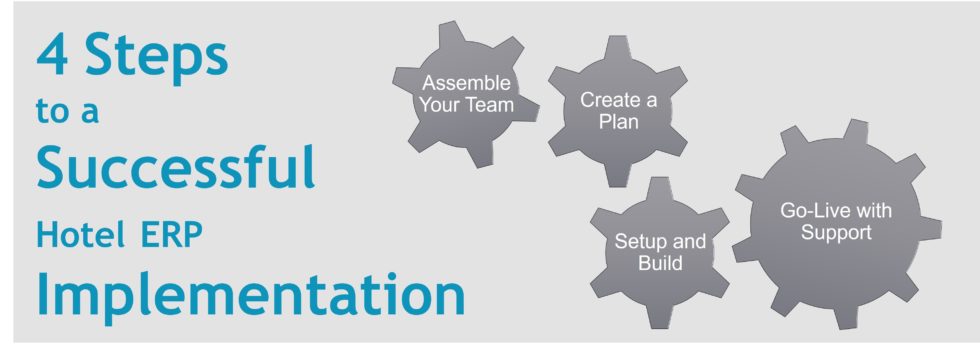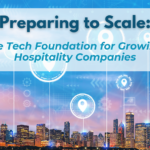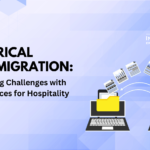4 Steps to a Successful Hotel ERP Implementation
These have been challenging times for hotels. But now, you are ready to upgrade your hotel company’s financial management and accounting software. You’d like a solution that compiles and organizes your data from all your various data sources for clear, actionable insight. You’ve even chosen the Enterprise Resource Planning (ERP) platform for the job. The right ERP will be specialized for the hospitality industry and will be experienced in implementing many other hotel companies, Hotel Investor Apps ERP & Accounting Software is. But you may still be daunted by the transition process. You need an implementation plan. Here are 4 steps to follow for a successful ERP implementation.
1. Assemble your team
Identify the individuals in your organization who will spearhead the implementation and become product experts. The Project Sponsor was probably the product champion during the evaluation and decision-making process. They typically have high-level goals for the product and the organization and understand the key requirements. You will also need a project manager to keep the project on track (on-time and on-budget).
Project management is a skill, and it requires expertise and time. If your company does not have the right person for the role, you may need to contract an outside consultant to help manage the process for the smoothest transition. It is also wise to cultivate your team technical project managers (in charge of specific modules or functions), and subject matter experts (who will perform set functions in the system).
Hotel Investor Apps stands apart from the competition with their level of support. HIA’s implementation team is here to support and guide you. Our basic implementation includes a project manager, account manager, technical experts, and functional experts.
2. Create a Plan
The planning and discovery phase is a good time to break down goals such automating processes and saving time to more specific goals such as reducing bank reconciliation time by 50%. It is important that you and your ERP provider review all of your current systems and workflows to identify inefficient or antiquated processes. From here, you will identify key requirements for the configuration of your new ERP. The Project Sponsor or Project Manager should prioritize requirements as need-to-have or nice-to-have. There may be a phased process of getting your team established in the basic accounting processes in your new system, and then adding even more integrated, automated processes into the mix.
At Hotel Investor Apps, we pride ourselves on open and direct communication. We know the hotel industry and know the struggles our customers face. We make a point to discover the key pain-points for our customers upfront which become the first need-to-have requirements. Hotel Investor Apps can guide your team in implementation best practices based on HIA’s team’s many collective years of implementing thousands of hotels.
Rainmaker Hospitality’s Prakash Maggan said, “An advantage is the open line of communication. We’ve always gotten a direct response to any concern. Communication has been wonderful. HIA has been really good about getting feedback about what changes can be done overnight and what customizations might take longer”.
Many of your current workflows or processes will be improved and made more efficient. Afterall, many of the benefits of implementing an ERP system come, not just from new software, but from a new, better way of doing things.
At HIA, we have seen many favorite processes of accounting teams that they may even be proud of, but which were cobbled together to make up for the lack of functionality in legacy software – think endless ‘unique’ spreadsheets, which can become obsolete or redundant with a modern ERP platform. Embracing and becoming fluent in the full value of the new functionality is key to letting go of these antiquated processes.
As an example of workflow changes to improve efficiency, if AP approvals currently go directly to the head of accounting, you can rethink who is best suited for different AP approvals. Multi-level approval processes can send automatic approval notifications to department heads or regional managers under certain dollar threshold. Approvals over a set sum could be sent to the head of accounting to approve; or could require multiple approvals.
Hotel Investor Apps supports hotel companies to effectively delegate many tasks. There are no per-user fees. Additionally, you can set very refined user specific security and access controls. With these controls, you can delegate a function to a team member knowing they can only access the function, or even the line items that they need to see in the system. Hotel Investor Apps also has total audit capabilities to track what each user does in the system.
During the Planning and Discovery phase your implementation team will determine a project time frame and plan for data migration, testing, and training. This is also the time to consider 3rd party software integrations, add-on solutions, and whether the go-live will be all at once or phased for your hotel portfolio.
At Hotel Investor Apps, we schedule recurring weekly meetings to review the project status and address any bottlenecks, especially in getting the chart of accounts, vendor list, historical data, and desired reports over to HIA for import. Hotel Investor Apps can import as many years of historical data as required (potential additional fee).
3. Setup and Build
This is the middle phase of your implementation. Based on your requirements, the ERP implementation team will define system preferences and build customizations in each module as required. It is the project managers role to ensure that the desire to add more functionality and customizations (scope creep) is kept in check; identifying which enhancements can wait until later and which cannot. The ERP project manager can also help you identify which customizations are included or not included in standard implementation.
Hotel Investor Apps will assist the customer implementation team to design processes and workflows in HIA. Hotel Investor Apps supports our customers’ implementations at whatever level you need with tiered implementation services. The HIA implementation team can import your chart of accounts, map your PMS import, setup your daily report, import historical data, import the vendor list, setup custom security roles, customize dashboards, and build custom reports, and migrate all open AP.
After data migration, it is essential that you validate your data by reviewing, checking, and testing. To avoid discrepancy in data, it is best practices to make sure that you have not left any entries in an open or unreleased status in your old system.
Hotel Investor Apps offers direct online training for your property teams, operations team, and accounting team. Training is targeted by functionality for the different groups. In addition, advanced training is available for the project sponsor, project manager, technical project manager, and subject matter experts to become ‘super users’. These super-users can train new employees and be a source of guidance for all employees’ questions. Recorded trainings are also available to view on your schedule.
4. Go-Live with Support
At Go-Live, it is time to stop entering data in the old system and start entering it into the new system. It is never recommended to try and use two systems at once. It is time consuming, leads to out of balance accounts, and delays learning the new system. It is counterproductive to the goals of a more efficient and successful organization.
Hotel Investor Apps does everything to prepare you and your teams to start day 1 completely in the new system. HIA implementation team will move all open accounts payable invoices so that you can pay bills in the new system from the get-go. Additionally, with your GL detail and financial history imported you will have continuous reporting, no matter what time of year you start.
The end-users will be sent their welcome email and login instructions. Now that users are working in the system more questions may come up either on the new processes or functionality. It is important to have a pre-established hierarchy of support so that employees know who to go to for their questions. Typically, people should first reach out to an internal super-user because most questions are a matter of training. If the question or issue is beyond the super-user, then, they will reach out to the ERP support team.
Hotel Investor Apps has a built-in help guide which offers suggested help articles based on the open page. There is also a universal search to quickly find any record or search for a help article. HIA customers repeatedly praise the support team for their responsiveness and accessibility. There are also ongoing weekly support webinars which offer a forum for questions as well as learning tips and tricks. Towards the end of the first month, HIA will provide month end closing training.
Paul Kloosterman, CFO at Merani Hotel Group, said of HIA, “We needed more advanced capabilities than what we had, including international functionality. HIA helped us move quicker than I could on our own or with another vendor”.
In Summary
With the right ERP and implementation team supporting you, there is no reason an ERP implementation needs to drag on or take months, if you don’t want it to.
If you’re ready to implement a modern and innovative hotel-specific ERP solution, Hotel Investor Apps has the technology for you. Our four-step implementation process, world-class implementation team, and hospitality experience will work for your business just as it has for hundreds of other hotel customers.
Contact our team today with any questions and/or to request a demonstration. https://hotelinvestorapps.com/index.php/request-a-demo/
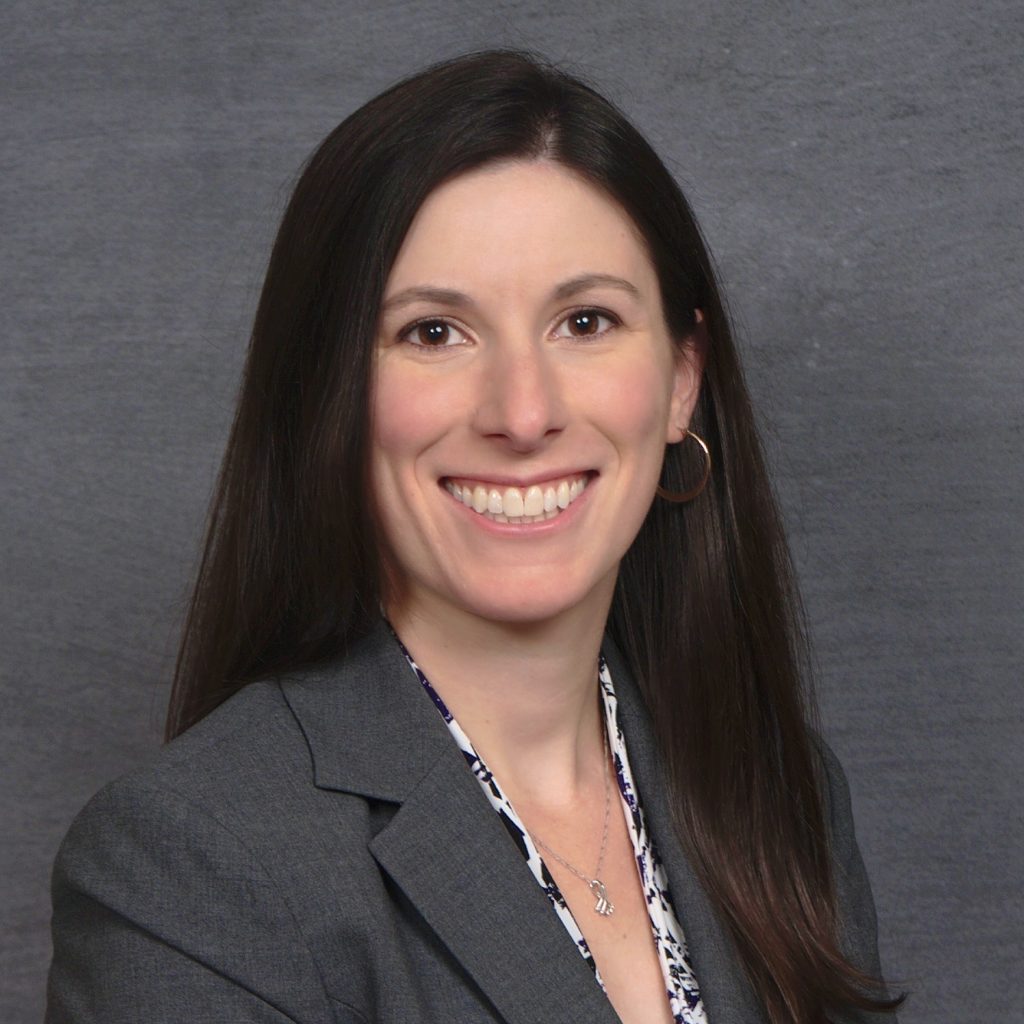
Jaime Goss has over a decade of marketing experience in the hospitality industry. At Hotel Investor Apps, Jaime heads up marketing initiatives including brand strategy, website design, content, email marketing, advertising and press relations.
